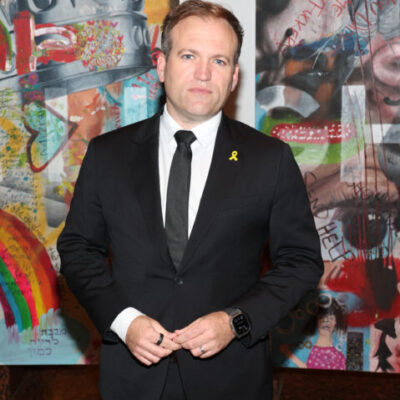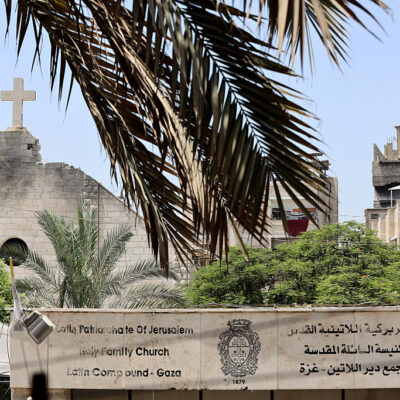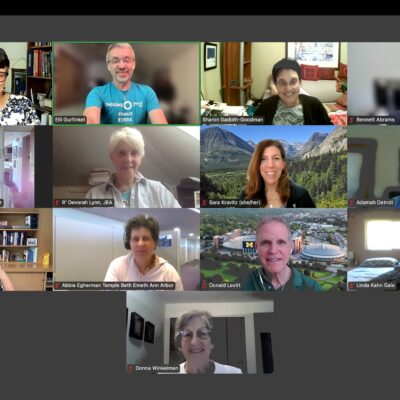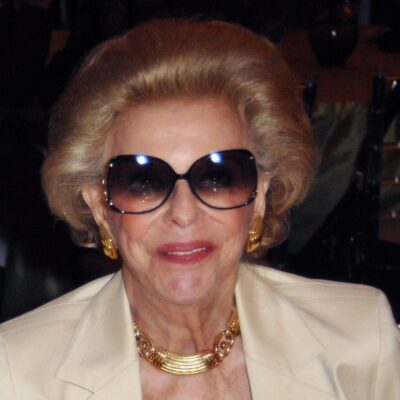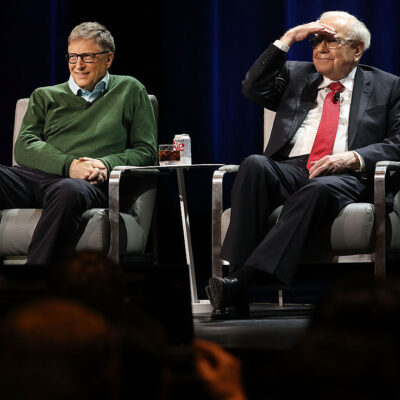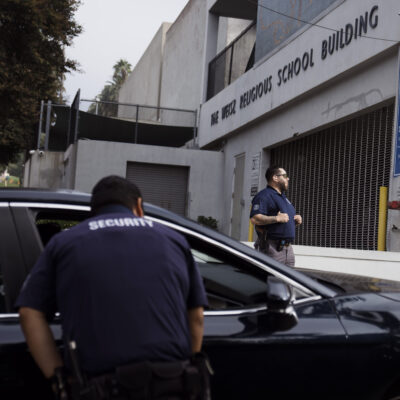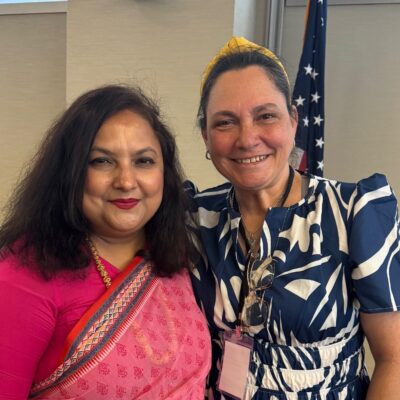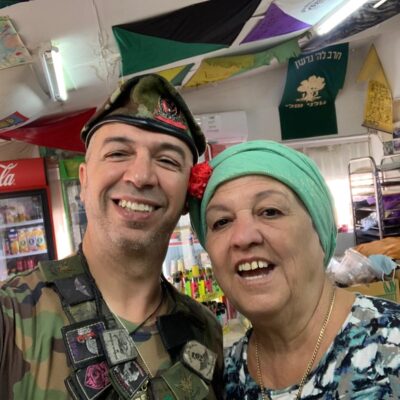HARD QUESTIONS
Sinai Temple congregants grill GHF head Johnnie Moore faces over Gaza crisis
'Rev. Moore is literally at the center of the most difficult and disturbing issue in the world at the moment, so how can we not engage in this conversation?' Rabbi Erez Sherman says
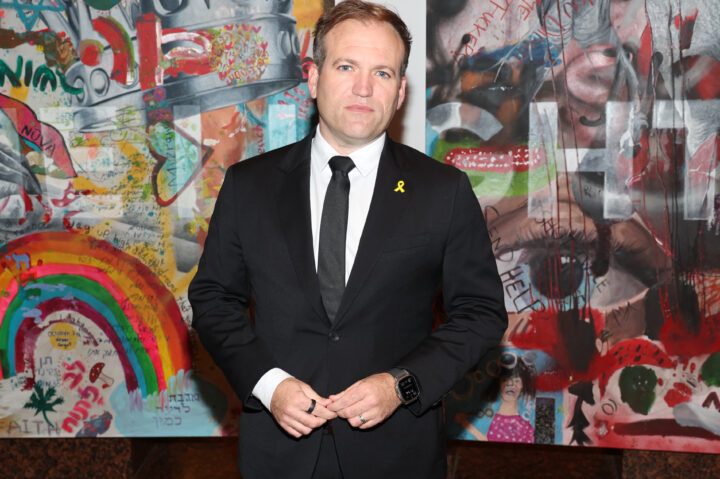
Jerritt Clark/Getty Images for Museum of Tolerance
Reverend Dr. Johnnie Moore, now-CEO of the Gaza Humanitarian Foundation, attends the Museum Of Tolerance Commemoration of the one-year anniversary of the October 7 attacks at on Oct. 6, 2024 in Los Angeles.
Faced with tough questions about the humanitarian crisis gripping Gaza from members of one of the country’s most prominent synagogues, Rev. Johnnie Moore, executive chairman of the Gaza Humanitarian Foundation, defended his organization while acknowledging that it is inexperienced and working to improve as Palestinians have been killed while trying to get food from its distribution sites.
“We’ve done a lot in two months, but it’s a new operation. We’re not perfect, we’re learning every day, and we’re dedicated to being direct about what we think is working and what isn’t,” Moore told members of Sinai Temple, a large Conservative synagogue in Los Angeles, in a webinar hosted by its leader, Rabbi Erez Sherman.
As hunger worsens in Gaza, American Jews — including those who are pro-Israel — are growing increasingly concerned with the humanitarian situation in the Palestinian enclave and placing some of the responsibility with GHF, which took over the aid distribution in May with backing from the United States and Israel.
Sherman told eJewishPhilanrhtopy that he received requests from many congregants to ask Moore “the tough questions.” That included asking about GHF’s model — which has limited food distribution sites to four locations that critics say are not easily accessible and can be dangerous.
The conversation came as Senate Democrats recently argued that GHF has “failed” in its mission and “contributed to an unacceptable and mounting civilian death toll.”
Moore pushed back against what he called “disingenuous” narratives about the organization’s work.
“Hamas is losing control,” said Moore, a member of President Donald Trump’s evangelical advisory committee. The terrorist organization has made shutting down GHF a central demand in ceasefire negotiations with the U.S. and Israel. “We are meeting with Gazans every single day.”
Moore also responded to skepticism about the humanitarian conditions in Gaza, insisting that the situation is indeed dire. Yet he also said that the issue is being used to unfairly criticize Israel and the United States.
“The hunger crisis in Gaza is real, and on the same token, this crisis is being used in all kinds of different ways to advance other agendas,” he said.
Emblematic of the questions and unease that American Jews are grappling with, congregants of Sinai Temple grilled Moore about troubling reports — such as Palestinians being crushed in crowds and killed by live ammunition waiting for aid — that have plagued GHF since it started delivering food and humanitarian aid in Gaza.
“Many days Hamas would attribute 100% of the casualties in Gaza to happening inside our distribution sites,” he said. “There have been some civilian casualties of people trying to get to our distribution sites — [which] the IDF has said it is responsible for, but we think that’s a relatively small number of people, [although] one person is too much … We have not seen the Israeli military do anything that remotely aligns with accusations [of misconduct] and we can’t control anything that happens outside of our [four] distribution sites.”
Moore added that the organization was considering a different approach in light of the chaos and challenges from operating out of its distribution centers.
“One of the things we’ve been doing is a very successful community distribution arm, which is more like the traditional U.N. system, where through local partners we distribute thousands of boxes more directly,” Moore said.
He went on to criticize “the broken humanitarian system [for] prolonging the war” and the United Nations for its unwillingness to partner with GHF, although a breakthrough may be coming he said, claiming that “in the last couple of days, we have some indications that some people in the U.N. system are going to defy the leadership.”
“I thought this conversation would be about food, but it’s a much greater conversation,” Sherman said during the webinar. He asked Moore about the link between photos of starving Gazans and the recent news that several countries, including Canada, plan to recognize a Palestinian state.
“Whether you agree or disagree with the policies of France, the U.K., they made those decisions within the context of talking about the humanitarian crisis of hunger in Gaza, a crisis caused mainly, not entirely, but mainly by a globally designated terrorist organization,” Moore answered.
Sinai Temple runs an Israel center “established to forge an ever stronger link between Los Angeles Jewry and Israel,” according to its website. But even as most congregants identify as pro-Israel, or “Israel engaged,” as Sherman prefers to describe it, he told eJP that the congregation is “a very diverse community,” which, like other Jewish American communities, is wrestling with how much blame Israel bears in the Gaza crisis.
“Rev. Moore is literally at the center of the most difficult and disturbing issue in the world at the moment, so how can we not engage in this conversation? The divisiveness in the Jewish community in America is very difficult and those two parts also need the opportunity to hear from each other,” Sherman said, referring to those who disagree on GHF’s approach. “This is a moment where we have to balance morality and conviction.”
“We’re in the week of Tisha B’Av and when you look at the history of Jewish communities splintering, it’s no longer theoretical, it’s a real piece,” he said.
“Rev. Moore has thanked us for the courage to bring him and I think that’s an important thing for speakers to understand, that it takes courage for communities to bring narratives that might not all be agreed with,” Sherman said, noting that he plans to bring Ahmed Fouad Alkhatib, a Gazan outspoken against Hamas who heads the Atlantic Council’s Realign for Palestine project, as the synagogue’s next speaker.
“Let’s see what he has to say,” said Sherman. “I’m interested in the narratives of people who wouldn’t necessarily be at my Shabbat table.”


